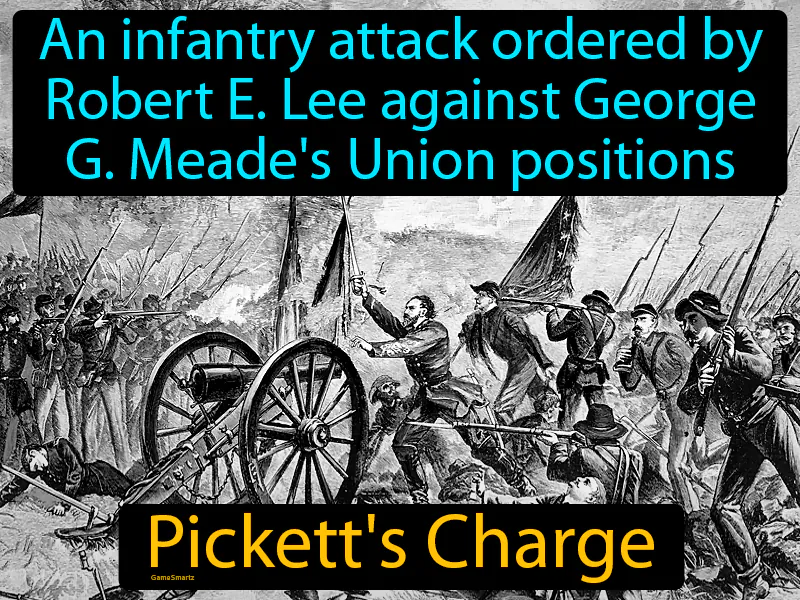Picketts Charge
Picketts Charge: Easy to understand
Pickett’s Charge was a pivotal moment during the Battle of Gettysburg in the American Civil War, marking a significant defeat for the Confederates. This event symbolized the high cost of war and the futility of aggressive tactics in the face of strong defensive positions. It highlighted the deep divisions in the country over issues like states’ rights and slavery, themes that still resonate in discussions about equality and federal versus state power today. In modern times, the charge reminds us of the importance of strategic planning and learning from past mistakes, which is relevant in everything from personal decision-making to large-scale political strategies. Additionally, the themes of unity and division seen in Pickett’s Charge can influence how individuals approach conflicts, encouraging collaboration and understanding rather than confrontation.

Practice Version

Picketts Charge: An infantry attack ordered by Robert E. Lee against George G. Meade's Union positions. Pickett's Charge. Pickett's Charge was a failed Confederate assault during the Battle of Gettysburg in the American Civil War.